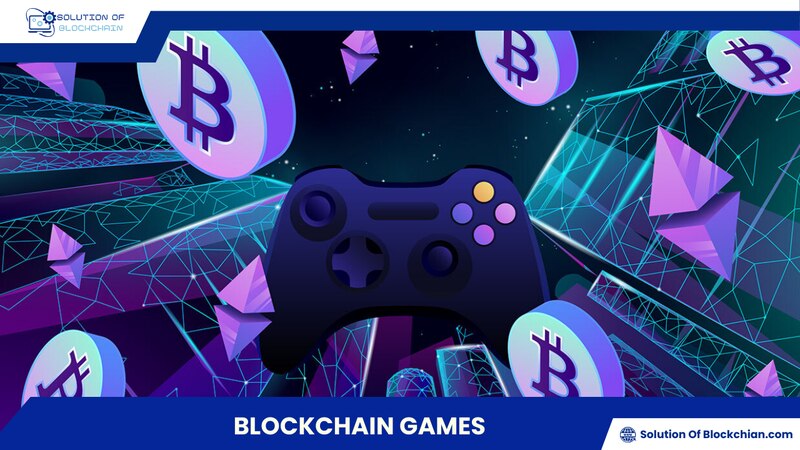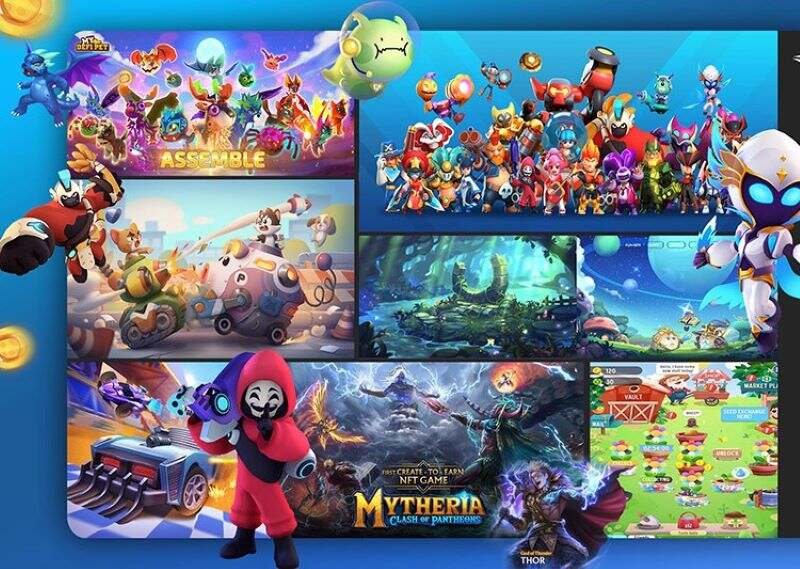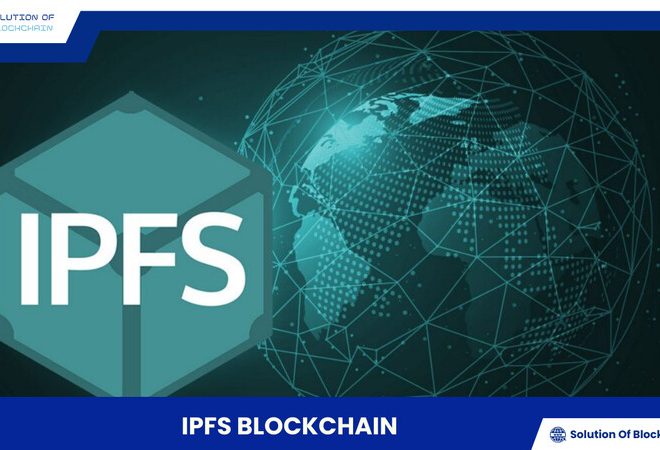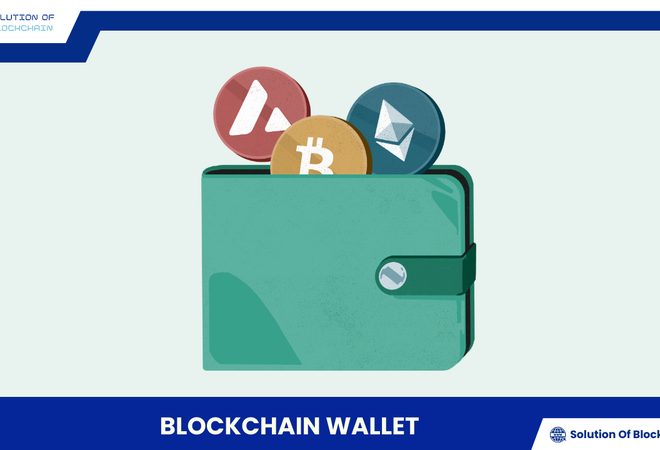
Blockchain games: The next big thing in the virtual world?
Combining cutting-edge blockchain technology with the allure of the gaming industry, blockchain games not only offer unique entertainment experiences but also open up potentially lucrative investment opportunities. So what are blockchain games? Are they the next big opportunity for investors?
What are Blockchain games?
Blockchain games are a genre of games built on blockchain technology. Unlike traditional games, data in blockchain games is not stored on a centralized server but is distributed across a vast network of computers. This ensures transparency, security, and immutability.
Essentially, a blockchain is a digital ledger that records transactions in blocks. Each block contains information about transactions and is linked to the previous block, forming an unbreakable chain.
In blockchain games, this technology is used to create unique, irreplaceable digital assets called NFTs (Non-Fungible Tokens). Each NFT represents an in-game item, such as a character, weapon, equipment, or land. Players have full ownership of their NFTs and can buy, sell, and trade them on NFT marketplaces.
Additionally, many blockchain games use their own tokens as in-game currency. These tokens can be used to buy and sell items, upgrade characters, and participate in events.
Key terms to know
- DeFi (Decentralized Finance): Allows users to access financial services without intermediaries.
- Play-to-earn: A gaming model where players earn rewards in the form of tokens or NFTs.
- Metaverse: A virtual world where users can interact with each other and participate in economic and social activities.
- Web3: The next generation of the internet, based on blockchain technology, focused on user ownership of data.
Types of Blockchain games
By genre
- Role-Playing (RPG): Players embody characters, explore worlds, and complete quests (e.g., Axie Infinity, Illuvium).
- Strategy: Players command armies, build bases, and battle opponents (e.g., Age of Rust).
- Simulation: Simulates real-life activities like business, construction, and management (e.g., The Sandbox, Decentraland).
- Action: Players control characters to fight and overcome obstacles (e.g., Thetan Arena).
- Card game: Players use cards to battle and collect (e.g., Gods Unchained, Splinterlands).
By economic model
- Play-to-earn: Earn rewards through gameplay.
- Free-to-play: Free to play, with optional in-app purchases.
- Pay-to-earn: Requires an upfront investment to play and earn.
Benefits of Blockchain games
For players
- Earning opportunities: Play-to-earn models allow players to earn tokens or NFTs.
- Asset ownership: Players truly own their in-game assets (NFTs).
- Transparency and fairness: All activities are recorded on the blockchain.
- Community: Strong communities foster connection and collaboration.
For developers
- Market expansion: Reach the growing crypto gaming community.
- Increased revenue: New monetization models like NFT sales and transaction fees.
- Enhanced engagement: Ownership, earning potential, and community drive engagement.
Risks of investing in Blockchain games
- Market volatility: Token and NFT values can fluctuate significantly.
- Project risk: Not all blockchain game projects are successful.
- Security concerns: Safeguarding digital assets in wallets is crucial.
- Legal uncertainty: Regulatory frameworks are still evolving.
Notable Blockchain game projects
The blockchain gaming market is rapidly expanding, with hundreds of new projects launching every year. Here are a few notable ones:
Axie Infinity
- Gameplay: Battle card game where players collect and train Axies.
- Economic model: Play-to-earn with SLP and AXS tokens.
- Highlights: Large community, sustainable economic model.
- Potential: Metaverse expansion, new features.
The Sandbox
- Gameplay: Metaverse virtual world where players create content and experiences.
- Economic Model: LAND ownership, NFT creation and sales, event hosting.
- Highlights: High creativity, Metaverse development potential.
- Potential: Collaborations with major brands, virtual economy building.
Decentraland
- Gameplay: Similar to The Sandbox, a Metaverse virtual world.
- Economic model: LAND ownership, building, business, event hosting.
- Highlights: Active community, diverse activities.
- Potential: Become a hub for entertainment, culture, and economy in the Metaverse.
Illuvium
- Gameplay: Open-world RPG with creature collecting and battling.
- Economic model: Play-to-earn with ILV tokens.
- Highlights: Stunning graphics, engaging gameplay.
- Potential: DeFi ecosystem development, Metaverse integration.
Star Atlas
- Gameplay: Space exploration game with spaceship ownership, exploration, combat, and resource gathering.
- Economic Model: Play-to-earn with ATLAS and POLIS tokens.
- Highlights: Realistic graphics, complex gameplay.
- Potential: Building a space gaming community, developing a space Metaverse.
Trends in Blockchain gaming
- Blockchain games and the Metaverse: Creating immersive virtual worlds where users can live, work, play, and earn.
- GameFi (Game Finance): Integrating DeFi into blockchain games.
- New technologies: VR/AR, AI, and next-generation blockchain tech are enhancing gameplay.
- Blockchain E-sports: Professional tournaments with lucrative prizes and high competition.
Blockchain gaming is an emerging market with immense potential, offering exciting investment opportunities. However, investors should research projects thoroughly, manage risks, and invest responsibly.
With the continuous development of blockchain technology and growing interest, blockchain gaming is poised for significant growth, reshaping the gaming industry and creating novel entertainment experiences.
Ready to explore the world of blockchain games? Follow Solution Of Blockchain to learn more about Blockchain Games and stay updated on other potential investment projects!






